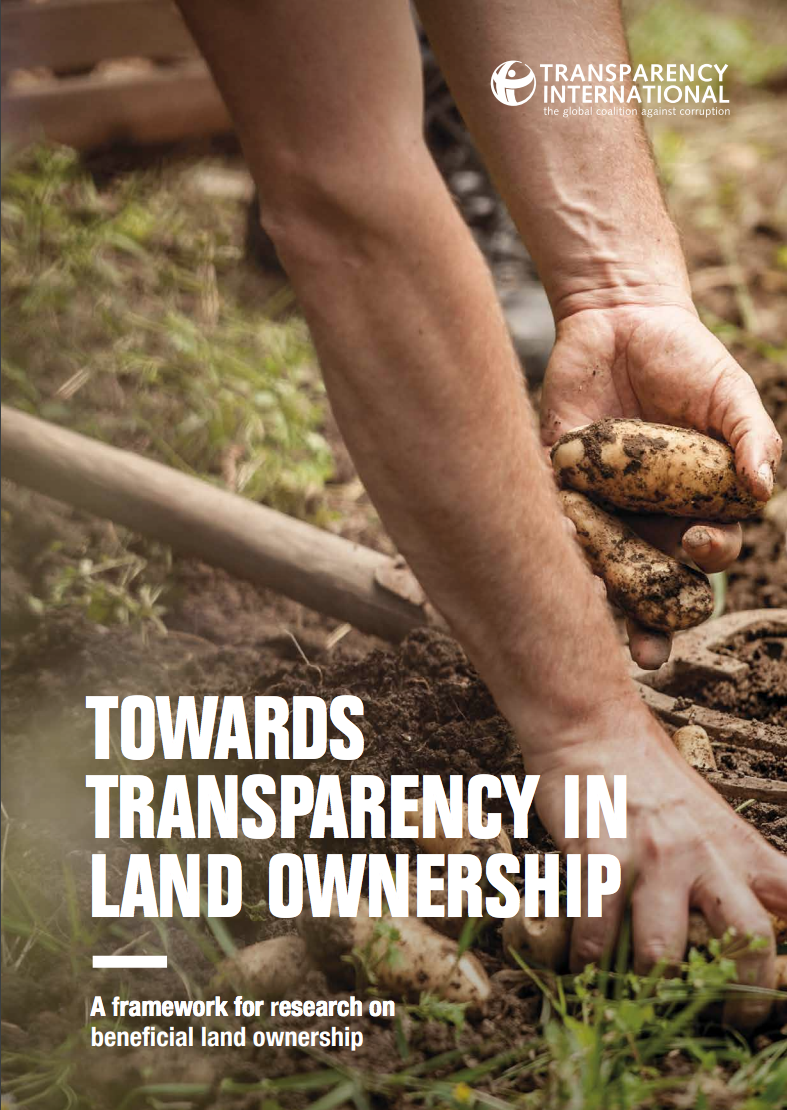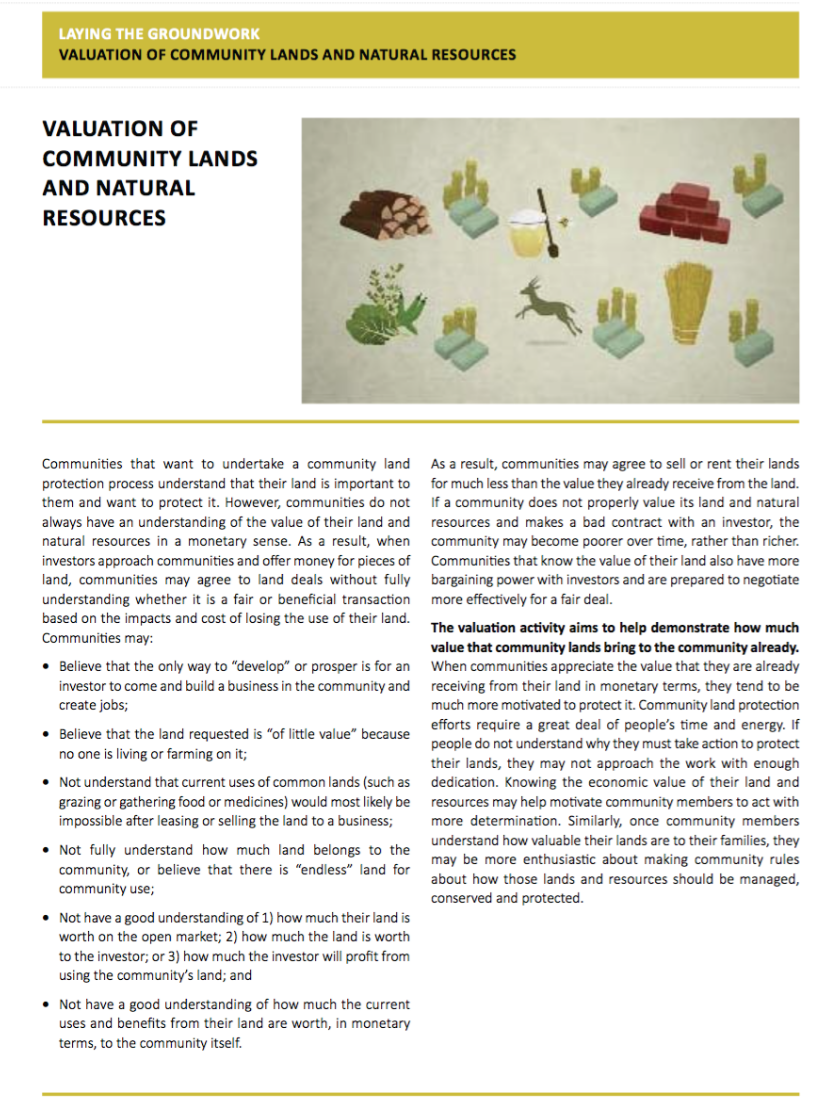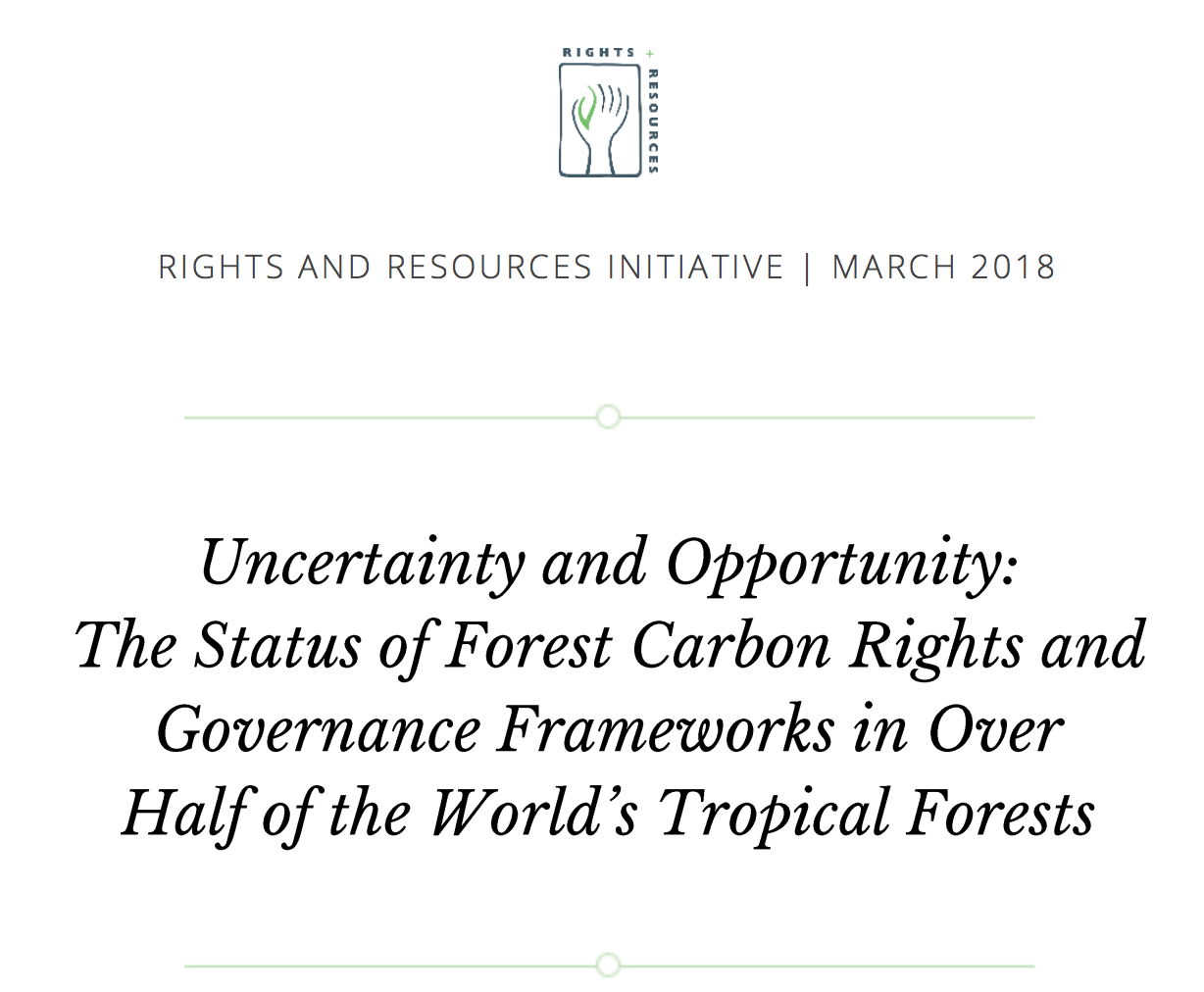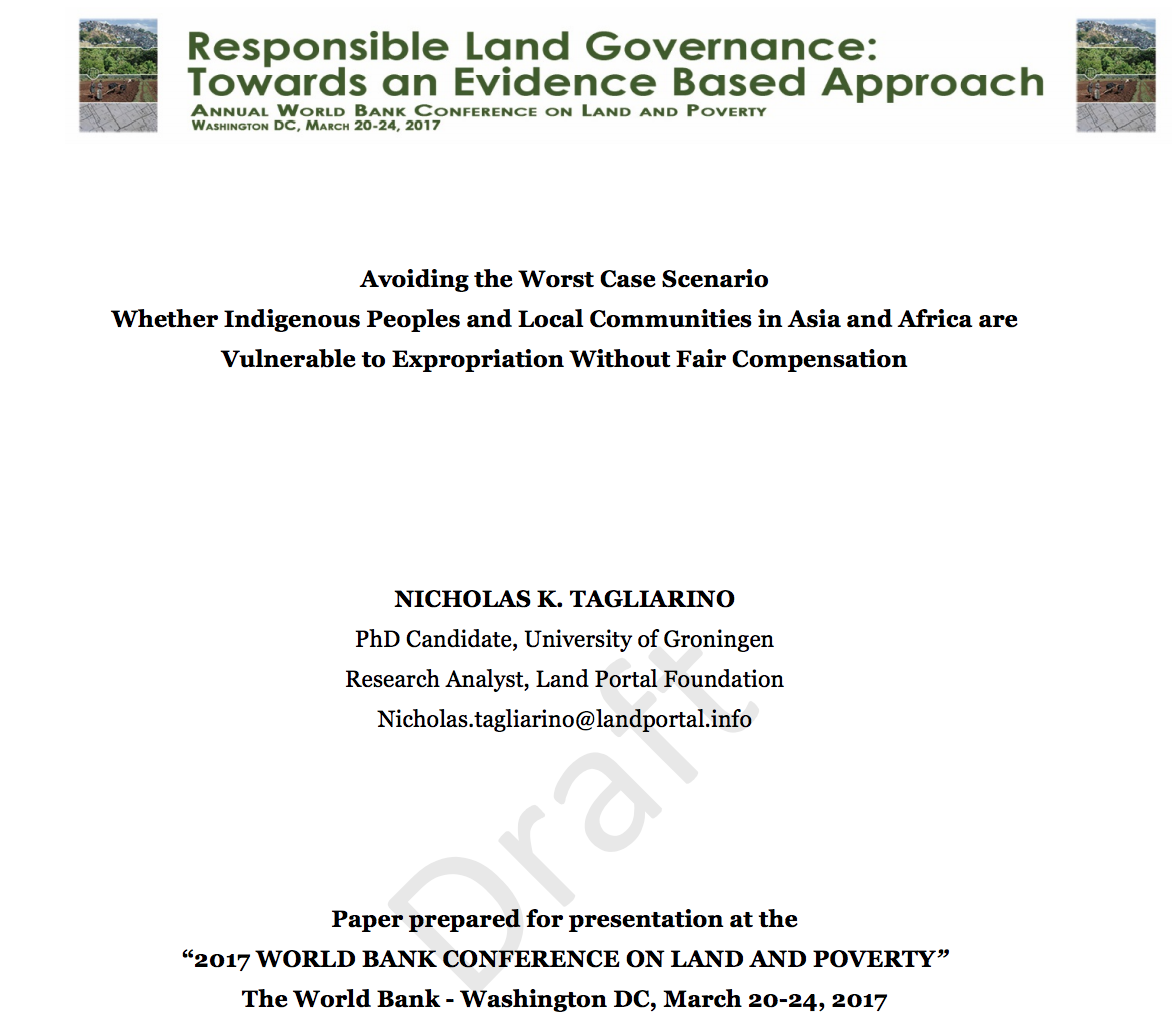Nicholas joined the Land Portal in September 2016 as a Research Analyst. Previously, he worked at the World Resources Institute (WRI), an environmental think tank in Washington D.C. At WRI, he assessed the land tenure security of indigenous and community lands for LandMark, a global platform of community lands. He also examined and wrote about expropriation laws and practices as well as environmental regulatory frameworks for WRI's The Access Initiative. In 2012-2013, Nicholas worked for the Law Reform Commission of Liberia in Monrovia and Oxfam India in New Delhi, where he conducted legal research related to land tenure, local governance, and other issues. He has a B.A.in Economics and Political Studies from Pitzer College and Doctor of Jurisprudence (JD) from Indiana University Maurer School of Law. Currently, he is pursuing at PhD at the University of Groningen Faculty of Law. His dissertation will focus on whether national expropriation, compensation, and resettlement laws in developing countries are adopting international standards designed to secure tenure rights and ensure responsible land governance.
Details
Location
Contributions
Displaying 1 - 10 of 72Towards Transparency in Land Ownership: A Framework for Research on Beneficial Land Ownership
In many countries, unidentified private individuals and legal entities obtain significant economic benefits from land. This lack of transparency can make it harder for affected communities and governments to hold them accountable for land use decision-making and any sort of violation they commit. It can also leave investors open to risk if they do not know who is truly behind a company they are doing business with.
Valuation of Community Lands and Natural Resources
A chapter from the Guide that explains the Valuation activity, designed to build awareness of the value of common lands and natural resources and increase community motivation to complete the community land protection process.
______
The Land Portal Foundation Partners Up with Maastricht University for Student Research Project on Land Governance
Posted by Catalina Goanta on Mar 16, 2018 in Catalina Goanta | on The Land Portal Foundation Partners Up with Maastricht University for Student Research Project on Land Governance
Press release
Uncertainty and Opportunity:
Most of the world’s remaining tropical forests lie in areas that are customarily managed and/or legally owned by Indigenous Peoples and local communities. In the context of climate change and global efforts to protect and enhance the capacity of forests to capture and store greenhouse gas emissions, the question of who owns the trees and the carbon stored therein is paramount. Clarifying this question is crucial, both for the future of the planet, and for up to 1.7 billion people worldwide who rely on forests for their livelihoods.
Land and Resource Rights for Economic Growth
Hundreds of millions of people around the world lack recognition of their rights to the land they live and depend on. Without legal recognition or basic documentation, people cannot plan for the future or invest in their land, even if they have lived and worked on it for decades.
LAW N° 32/2015 OF 11/06/2015 RELATING TO EXPROPRIATION IN THE PUBLIC INTEREST
This Law determines procedures relating to expropriation in the public interest
Law on Land Acquisition 2017
Article One:
This law has been enacted in accordance with paragraph (4) of article 40 of the Constitution of Afghanistan.
Objectives
Article Two:
The objectives of this law are as following:
Avoiding the Worst Case Scenario:
This paper examines whether national expropriation and land laws in 30 countries across Asia and Africa put Indigenous Peoples and local communities at risk of expropriation without compensation. In particular, this paper examines whether national laws ensure that communities are eligible for compensation and whether eligibility requirements effectively close the door on communities seeking compensation.
Compensation for Expropriated Community Farmland in Nigeria:
In Nigeria, the recurring impoverishment and other negative socioeconomic impacts endured by landholders affected by expropriation are well-documented and call into question the Land Use Act’s (LUA) effectiveness in protecting local land rights. The World Bank’s Land Governance Assessment Framework found that, in Nigeria, “a large number of acquisitions occurs without prompt and adequate compensation, thus leaving those losing land worse off, with no mechanism for independent appeal even though the land is often not utilized for a public purpose”.
Law of the Right to Prior Consultation to Indigenous or Native Peoples, recognized in the Convention 169 of the International Labour Convention (ILO)
The present Law develops the context, principles and procedures for the right to prior consultation to Indigenous peoples or native regard to the legislative or administrative measures that directly affect them. It is interpreted in accordance with the obligations under Convention 169 of the International Labour Organization (ILO), ratified by the Peruvian State through the Legislative Resolution 26253.








